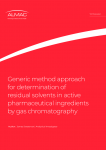Dr. Reddy's is big enough to bear the brunt of closed Mexico plant, says Barclays

This week Dr Reddy's was allowed to open the doors to its Industrias Quimicas Falcon de Mexico bulk drugs facility in Morelos, Mexico for the first time in a year after successfully resolving problems at the site that resulted in a US FDA import ban in July 2011.
Problems flagged in the warning letter included cGMP (current good manufacturing practice) issues with API (active pharmaceutical ingredient) production, failure to validate HPLC (high-performance liquid chromatography) testing methods for assays, and un-clean manufacturing equipment.
Despite the reopening some have expressed that Dr Reddy's will struggle to reclaim lost ground – including the firm itself according to a BNP Paribas report stating that “Management believes all of the lost sales will not be recoverable, as some customers will have moved to competitors for material sourcing over the last year."
However, others observers are more positive about Dr Reddy's recovery prospects in the longer term, including Barclays Capital India which argued that the firm is big enough to take the short term hit.
Speaking to in-PharmaTechnologist.com, Balaji Prasad, VP of global equity research at Barclays Capital India, said: “This will be slightly challenging as they will need to regroup their customers, who would have procured these APIs from elsewhere.
“But I presume that Dr. Reddy’s has the advantage of having one of the largest API businesses globally, and hence can use that competitive advantage to resume sales.”
He quelled any notion of a plant closure, saying that it would render any efforts to get the facility back on track would be rendered wasted.
Prasad added that in reality the closure did very little to affect the Indian giant’s overall business, with a sales hit of just 2.5 per cent.
Plan of action
In a statement, DR Reddy's said: “With the satisfactory closure of observations in the warning Letter and the lifting of the import alert, Dr. Reddy's can now start importing products to the US from this facility.”
According to Prasad we could expect to see imports back to their former level within the next few months.
He also said that picking up API sales is an obvious focus, adding: “Pricing and a large portfolio of APIs and intermediates, which gives them a competitive edge, will be key to reclaim the customers.”
When asked if this means a change in the type of API made there, he said it would be unlikely because issues were never to do with the product.
Prasad said however that growing its generics business in the US remains the “much bigger picture” for the firm, following an announcement in June in which the firm promised investors “15-20 new launches annually with launch-year revenues in the range of $100-200m.”
“I don't expect the Mexican plan to be a core part of Dr. Reddy’s US generics goal,” he added.


















